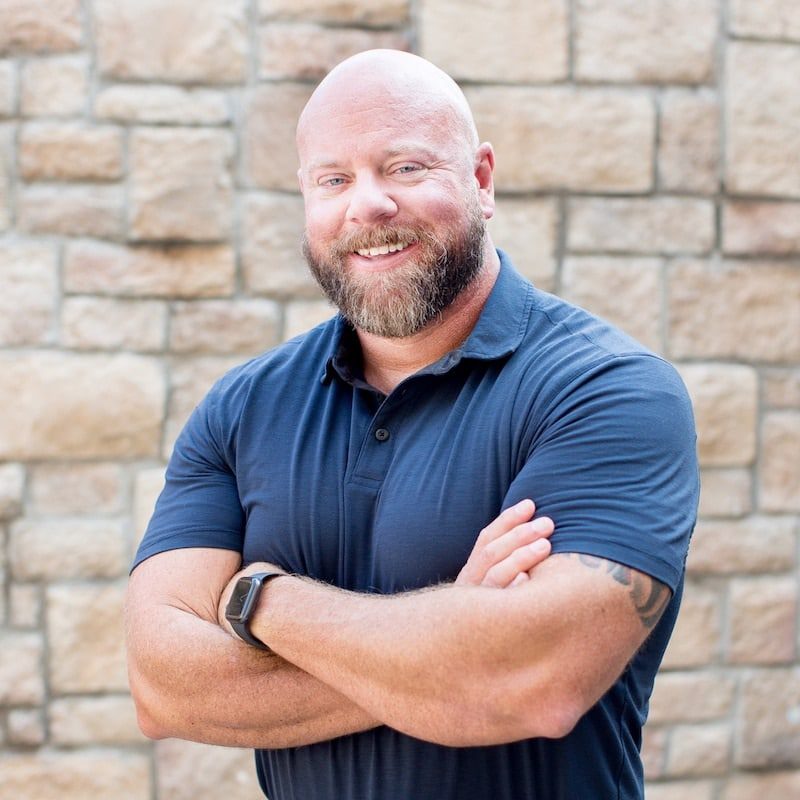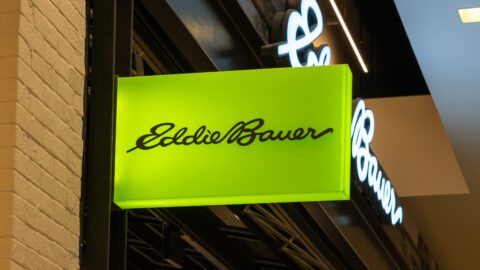When President Trump first announced his “reciprocal tariffs,” the National Retail Federation specifically called out the outsized burden they would have on smaller businesses. “The immediate implementation of these tariffs is a massive undertaking and requires both advance notice and substantial preparation by the millions of U.S. businesses that will be directly impacted,” said NRF’s EVP of Government Relations David French.
Of course, Trump swiftly changed tack and announced a 90-day pause on the tariffs, but rather than a reprieve, this brief interlude feels more like the eye of the storm, with no one able to predict what’s waiting on the other side. That uncertainty has left many businesses, both large and small, feeling a bit at a loss for how to prepare even though they now have the time to do so.

Entrepreneur and small business owner Ryan Matt Reynolds has some ideas on that front. Reynolds (who goes by Matt because “Ryan Reynolds” is a difficult name to build a brand around, for obvious reasons) is a master of the strategic pivot. Over the course of his career he has been an elite power lifter, a primary education teacher, a gym owner, and he is now the owner of online wellness company Barbell Logic as well as a business coach, podcast host and author. His book, Undoing Urgency: Reclaiming Your Time for the Things That Matter Most, outlines the lessons he’s learned over 20 years of business ownership — with one of the most important being prioritizing the right things.
One could argue that that is the central challenge facing almost any business owner today — separating the signal from the noise and taking action to fortify their business for whatever comes next, amid historic uncertainty about what that might be. In an interview with Retail TouchPoints, Reynolds laid out how companies can do exactly that.
Retail TouchPoints: How would you describe the sentiment on the ground right now in the small business community?
Ryan Matt Reynolds: It’s just not stable. There have been times when things were incredibly stable and you could look forward three years and see where things were going, but nobody knows that right now. If you’re a retail purchaser, yeah, you’ve got a little pause on the tariffs, but you’ve got some work to do. And even if you’re not — like us, we’re primarily a service and a SaaS business, so we’re not buying product from China — this is a great time to get lean, trim fat and figure out where you’re spending, where you don’t have to spend and where can you redirect.
We literally just did this. We had five employees of about 30 where we had to decide, should we lay them off or redirect them to a place that is more profitable for the business based on what is an unknown future? For us, the negative cultural impact of laying off employees was not worth it. We’re building multiple brands, and we looked at the most important and redirected those content marketing and sales people toward the brands that we felt would give the best ROI on our investment.
We also cut most of our third-party [contracts]. I would rather pay someone who is an expert $1,000 for a one-hour phone call [to learn what I need to know] rather than pay them $5,000 a month for the next 12 months to do the work, and that’s what we did. I don’t want somebody else managing my social media, I want my social media manager managing my social media, but I am totally willing to spend $1,000 for an hour phone call to make sure that they can. [By doing that] we reduced the development cost of our software by about 50% until we win another military contract.
It doesn’t matter whether the tariffs tremendously affect you, this is a great time to really work through your financials, get as lean as you can, cut your costs and try to drive up revenue as much as you can, because we don’t know what the next couple of years holds. Now is the time to say, “We’re not in crisis mode, we’re in problem-solving mode, and the problem that we’re solving is we’re trying to get cash-flow positive as quickly as we can so that if things go bad, we’re still in a good place. If things end up going great, that’s just icing on the cake.”
RTP: With regard to the tariffs, do you think there is a difference in how all this uncertainty is impacting small businesses versus large national or multinational corporations?
Reynolds: On some level, yes, but ultimately, if you’re buying product from a country that is highly tariffed, there actually isn’t that much difference. This is why the 90-day pause is such an important moment to cut costs and get yourself in a really good financial situation, because you don’t know what it’s going to look like three months from now. If you have to buy lithium batteries from China, you don’t know if there’s going to be an extended pause or another reciprocal tariff that’s [going to take it to] 200%, so you’ve got to put yourself in the best position you possibly can.
Your financial statements should reflect your worst-case scenario. I’ll give you an example for us — while the tariffs don’t affect us tremendously, we have a lot of military contracts, and with DOGE [the Department of Government Efficiency, which has instituted sweeping layoffs and cutbacks over the past three months], the military contracts could dry up. We have to budget so that if we never get another military contract again, we’ll still be okay.
That’s what companies have to do right now, protect yourself with a plan. That doesn’t mean you have to lay off 50% of your employees; that’s not what I’m saying. But you’ve got to put yourself in a position so that you’re cash-flow positive and you extend your runway.
Founders have two primary goals, and they’re connected: Number one, we’re problem solvers; and number two, we have to be sure there’s cash in the bank to pay the payroll. So if the crap hits the fan, if the worst-case scenario happens, will there still be cash in the bank to pay your people? If not, you have to figure it out. That’s the most important thing the founder can do — solve problems and make sure there’s cash in the bank.
RTP: It does seem that this all might be harder for small businesses without the cashflow and manpower of larger companies. How can small businesses with more limited resources prioritize right now?
Reynolds: You identify the weakest link in your business financials and figure out a way to improve that. So, for example, if [these tariffs do] hit and your cost of goods goes up 200% and therefore your gross margin drops by 50%, you [start looking at which] country has lower tariffs that you can get alternative production from. Obviously a small company can’t just start up a factory like Elon [Musk] did and make the thing, but that is actually a symptom of the ultimate root problem, which is, if my business is entirely dependent on military contracts or cheap product from China or some other country, that is a vulnerability.
You need to, as a founder, expose your vulnerabilities quickly with your C-suite and figure out the alternative plan. Is it another country? Is it purchasing things from the United States? Ultimately, it’s about figuring out where the weak link in the chain is.
RTP: Beyond the business details, this is all just really stressful for business owners across the spectrum. How can leaders in this environment keep a cool head and minimize stress or panic?
Reynolds: I’m also preaching to myself here, but even the biggest founders in the world, [Meta CEO Mark] Zuckerberg and [Nvidia CEO] Jensen Huang and all these guys, have figured out that they cannot run their business well without being physically healthy. What we end up doing is going into crisis mode, but it is our job to stay mentally sharp, physically sharp, maintain relationships in our family, in our marriage, with our kids, with the people around us. And when we sacrifice those things, which sometimes has to be done for a short period of time, it’s unsustainable. There is a time that will come when those relationships will disintegrate.
Your whole life can’t be the business, unless you’re a 22-year-old with no wife, no kids, no other responsibility, then you can just work 18 hours a day. I’m a 46-year-old founder who has owned a business for 25 years, so at some point I have to go, look, no matter how important or urgent this problem seems to be, I have to take care of myself. Sure, I could not work out today, save an hour-and-a-half and work, but long term the importance of [staying healthy] is far more important than that extra hour of work.
You perform better when your brain is sharp, and as a problem solver, your brain has to be sharp. If you’re sleeping four hours a night, you’re stressed all the time, you’re not working out, you’re eating crap, you’re drinking too much alcohol, that will catch up with you. The bottom line is, purge your life of the things that are not urgent or important; delegate the things that are urgent but not important; and work efficiently on the things that are urgent and important so that you can free up as much time as possible to work on the really important things, which are almost never urgent. For example, taking my daughter on a daddy-daughter date is never urgent, but it’s really important.













